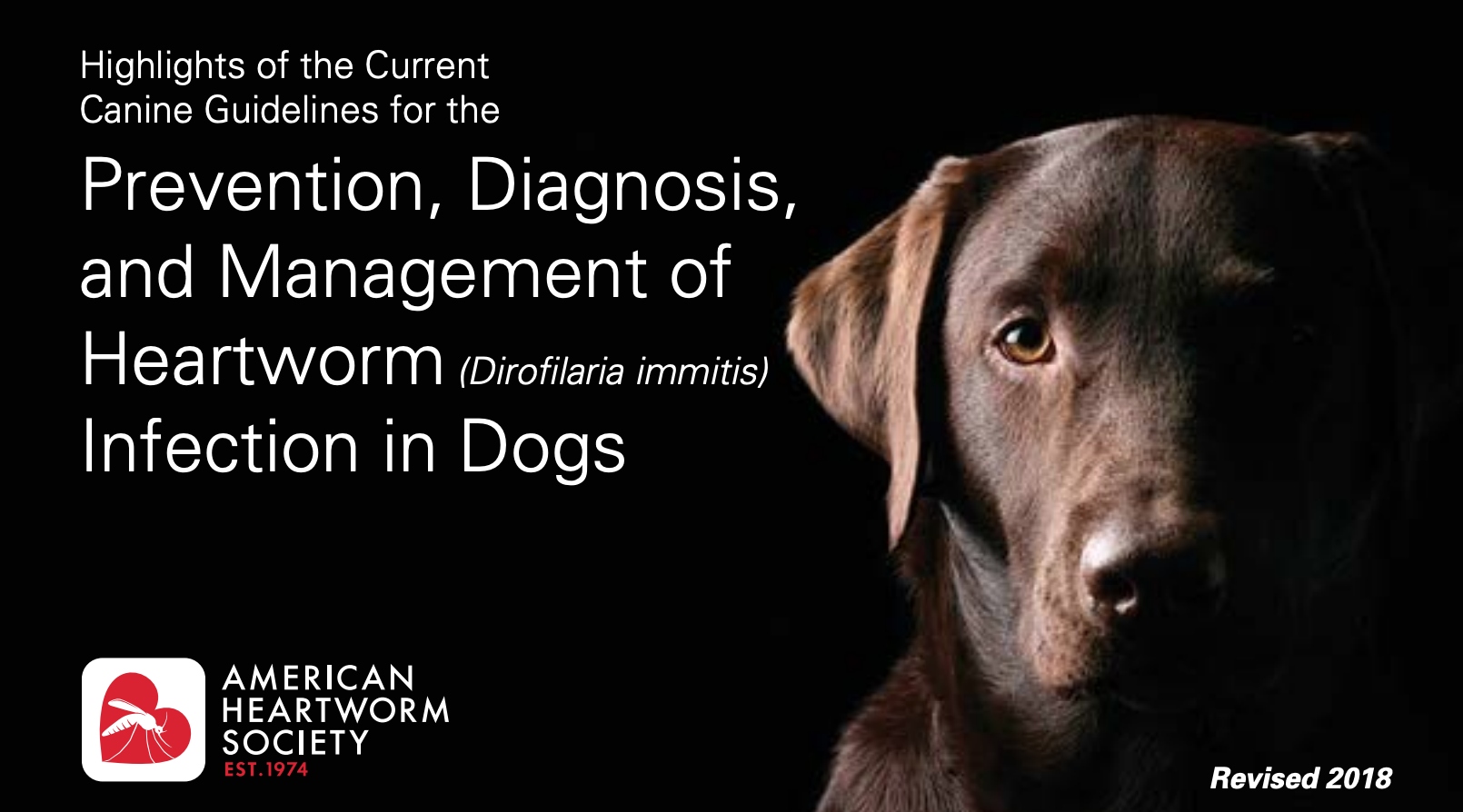These recommendations, revised in 2018, supersede previous editions and are based on the latest information presented at the 2016 Triennial Symposium of the American Heartworm Society (AHS), new research, and additional clinical experience, and have been peer reviewed by independent experts. The complete version of the 2018 Canine Guidelines can be found at the American Heartworm Society’s website.
SUMMARY OF HIGHLIGHTS
Diagnostics:
AHS recommends annual antigen and microfilaria testing. (As the interpretation of diagnostics has become more complex, please see the “Microfilaria and Antigen Testing” section for more complete information.)
Prevention:
AHS recommends year-round administration of preventive drugs approved by the US Food and Drug Administration (FDA) to prevent heartworm infection and enhance compliance, the latter being particularly important in light of the documented presence of resistant subpopulations. Application of an Environmental Protection Agency (EPA) registered mosquito repellent/ectoparasiticide has been shown to increase the overall efficacy of a heartworm prevention program in laboratory studies involving known resistant heartworm isolates by providing control of the arthropod vector of heartworm. In addition, AHS recommends reduction of exposure to mosquitoes through standard environmental control of mosquitoes and their breeding environments, and when possible, reducing outdoor exposure during key mosquito feeding periods.
Download the 2018 Heartworm Canine Guidelines Highlights PDF

